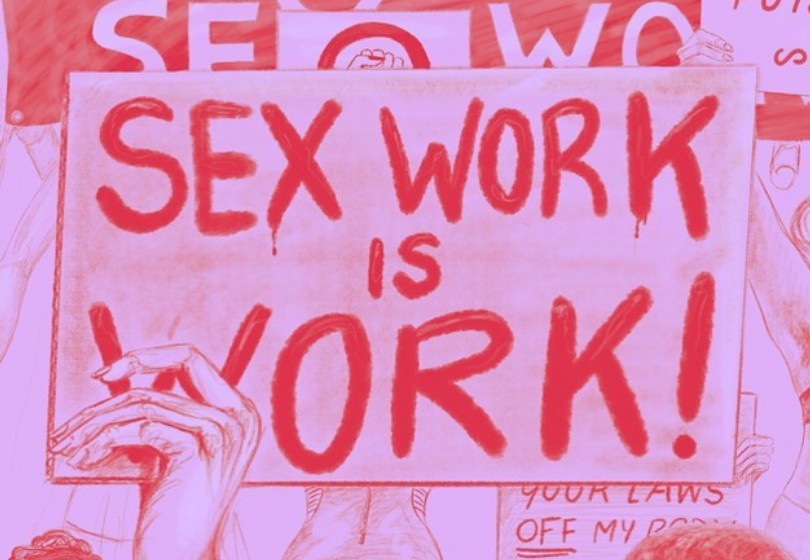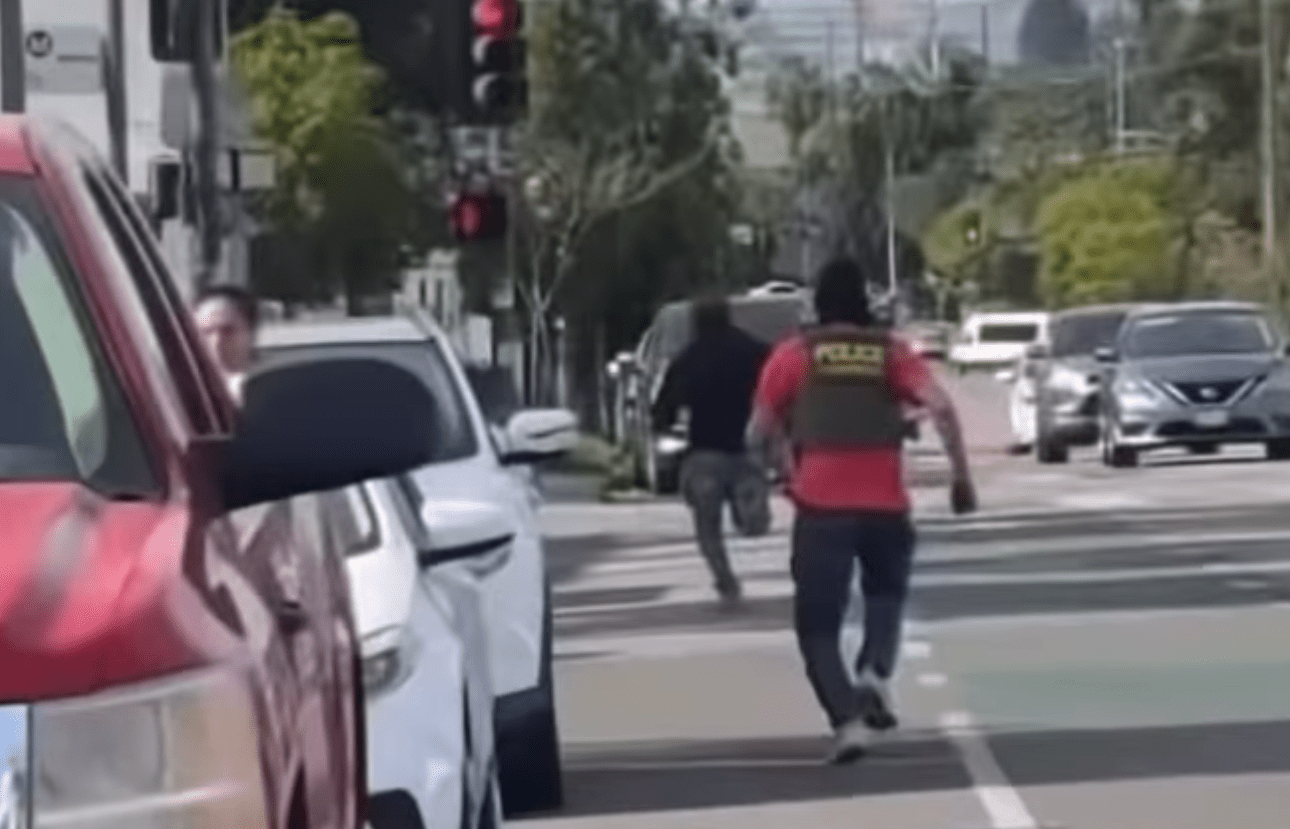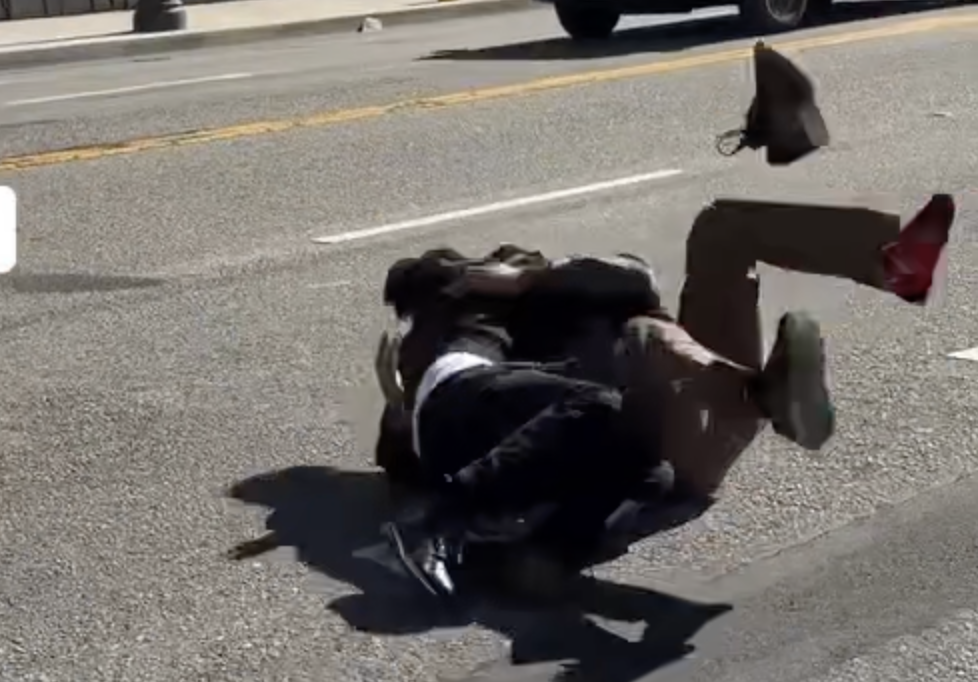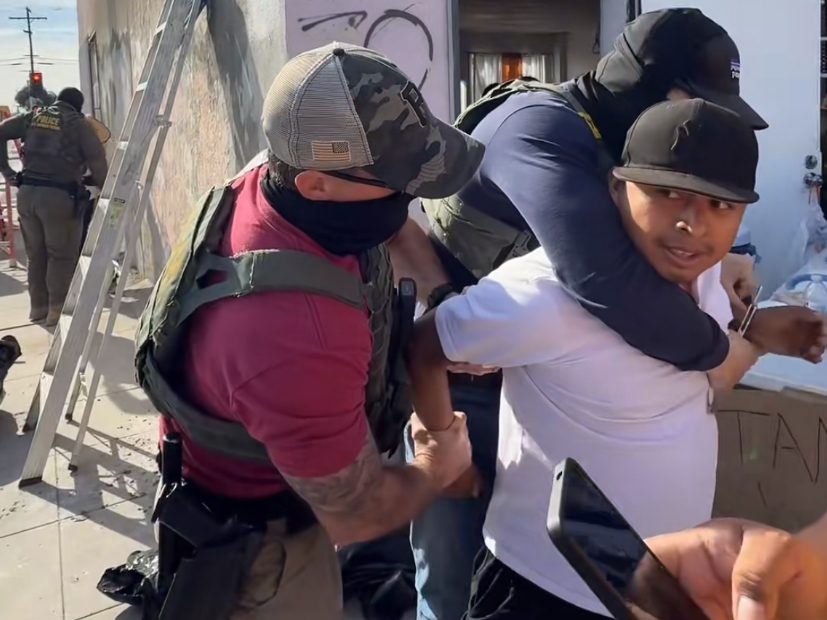A recent thread on Reddit called our attention to a bill passed recently by Governor Gavin Newsom that decriminalizes loitering in a public place with the intent to practice sex work in California.
A Koreatown-based user named AutomaticXChaos writes to Reddit under the R/LosAngeles tag that they’ve noticed a sudden appearance of more of sex workers appearing and hanging out openly in their neighborhood, “working the streets in broad daylight,” as early as 8am and “clad in thigh high boots, fur coats, and neon green bikinis.”
The writer wonders how this is possible out in the open in such a “heavily populated and policed area.”
Respondents add that they’ve noticed a similar increase in the number of sex workers in the area, as well as used condoms on the street, while another chimes in seen that they’ve seen a similar surge in sex workers hanging out more openly in Buena Park, as well as more familiar avenues of L.A. sex work.
The reason, another Redditor suggests, may be due to new state legislation passed this month that eliminates “loitering” with the intent to provide sex work.
Senate Bill 357, called “The Safer Streets For All Act” and initially proposed by Senator Scott “I Know, My Last Name Is” Weiner in early 2021, amended several provisions in California State Law to repeal punishments for “loitering with the intent to commit prostitution,” as well as license someone convicted for such an offense to petition the court to dismiss and seal their case, and even offer re-sentencing in that case, if applicable.
The bill was passed by Governor Newsom on July 1.
SB-357 also states that condoms found in people’s possession can not be admitted as evidence or used as a cause for arrest, and also protects whistleblowers from being arrested for possession of a controlled substance or practicing sex work when reporting a serious felony they’ve witnessed or been victim to, in circumstances including human trafficking, extortion, domestic violence, sexual battery, or stalking.
The amendment still tries to hold pimps, groomers, and johns accountable by maintaining laws against supervising, recruiting, aiding, or collecting proceeds from anyone engaging in an act of prostitution.
Nor does it permit the practice of sex work or people soliciting others with sex work themselves.
- Wiener’s intention, as stated here, is to protect people, especially transgender women and Women of Color, from the police harassment, violence, and criminalization they disproportionately face from anti-loitering laws that are used to harass both sex workers, as well as people who aren’t doing anything but standing around in whatever they wish to wear.
Loitering laws have a long history of being used as a pretext for stopping, searching, and arresting people under suspicion of being somewhere they are “not supposed to be” or having criminal intent, the interaction potentially leading to mistaken arrests, violent encounters, or even loss of life at the hands of an intervening police officer.
Anti-loitering laws, as laid out in the now repealed section 653.23 of our state’s Penal Code, can be used as a bit of a free suspect wild card for cops who want to check out anyone who catches their interest in closer detail, whether they deserve it or not.
In urging Newsom to sign the bill in June, Wiener wrote:
This Pride Month, as we see a surge in violence against and harassment of the LGTBQ community, it is more important than ever to get rid of a law that targets our community. Current law essentially allows law enforcement to target and arrest people if they are wearing tight clothes or a lot of make-up. Many of those impacted by this law are Black and Brown trans women. Pride isn’t just about rainbow flags and parades. It’s about protecting the most marginalized in our community.
Fatima Shabazz, of the California chapter of DecrimSexWork Coalition, an alliance of current and former sex workers, organizers, and allies that made SB 357 their first legislative initiative says, “SB 357 repeals a Jim Crow law that criminalized Black and trans people in public spaces.”
Lisseth Sanchez, also of DecrimSexWorkCA and St. James Infirmary, a nonprofit serving sex workers, stated, “ahora nosotros nos sentimos libre de caminar en la calle sin miedo que la policia nos vaya a arrestar (now we can feel free walking on the streets without fear of the police coming to arrest us).”
The bill, which was voted against by a few Democrats, was also slammed by a 60-year-old, national non-profit named End Sexual Exploitation. Stephanie Powell, the group’s vice president and a former vice sergeant with the LAPD, said in her own statement:
With the passage of SB 357, California will become a haven for sex traffickers and sex buyers. We are disappointed that Gov. Newsom signed this bill into law, as it will severely cripple law enforcement’s ability to arrest and prosecute sex buyers and traffickers. A substantial number of vice investigations into trafficking began by identifying loitering for prostitution or other crimes. Without loitering laws, law enforcement has a much harder time doing its job to prevent crime. Please note a police officer can only arrest on a misdemeanor if they witness it occurring. With loitering no longer a crime, an officer who witnesses cannot investigate, even if the person loitering is suspected of being exploited or underage. The risk for sexual abuse increases significantly when exploiters are allowed to roam marginalized communities without consequences.
Newsom, for his part, wants to make it clear as to why he signed the bill, focusing on L.A. stats when noting that “the crime of loitering has disproportionately impacted Black and Brown women and members of the LGBTQ community. Black adults accounted for 56.1 % of the loitering charges in Los Angeles between 2017-2019, despite making up less than 10% of the city's population.”
In the same statement, Newsom wrote:
To be clear, this bill does not legalize prostitution. It simply revokes provisions of the law that have led to disproportionate harassment of women and transgender adults. While I agree with the author's intent and I am signing this legislation, we must be cautious about its implementation. My administration will monitor crime and prosecution trends for any possible unintended consequences and will act to mitigate any such impacts.







